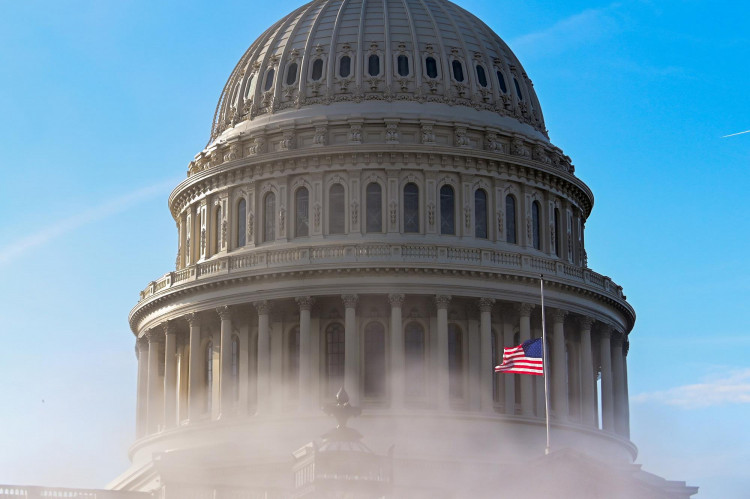Congress is working diligently to pass a significant $1.2 trillion government funding package to prevent a looming government shutdown. With the deadline fast approaching this Friday, the sense of urgency is palpable on Capitol Hill as lawmakers from both chambers strive to navigate the legislative hurdles that stand in their way.
The release of the extensive legislative text, which spans over 1,000 pages, has set off a legislative sprint, underscoring the critical importance of securing funding for vital government departments such as Defense, Homeland Security, and Health and Human Services before the end of the week.
One of the key features of the funding package is the allocation of $19.6 billion to Customs and Border Protection, a notable increase that does not, however, extend to the construction of a border wall. Instead, the funds are directed towards enhancing border security measures, including the addition of Border Patrol agents, aligning with the priorities set forth by the Biden administration.
The Department of Homeland Security is set to receive a significant boost with nearly $90 billion in discretionary funding, aimed at strengthening the nation's security infrastructure. This includes an increase in detention bed capacity to 41,500, reflecting a response to the recent challenges faced by US Immigration and Customs Enforcement in managing detention space due to budgetary constraints.
Moreover, the Department of Defense is poised to benefit from an infusion of $824.3 billion, marking a substantial increase from the previous fiscal year and underscoring the commitment to national defense.
In a gesture towards supporting allies, the legislation also proposes the issuance of an additional 12,000 special immigrant visas for Afghans who have assisted the United States, showcasing a bipartisan effort to fulfill promises made during overseas engagements.
The bill notably dismisses several controversial amendments, including those aimed at reducing the salaries of top administration officials to a mere $1, and blocking funds for diversity and inclusion initiatives, as well as the prohibition of flying the Pride flag. This decision has been praised by Speaker Mike Johnson as a move to prioritize national defense and support for service members.
Despite a shared bipartisan goal to avert a shutdown, the path to passing the package is fraught with potential obstacles. House GOP rules require a 72-hour review period before any vote can take place, a stipulation that could delay proceedings unless an exception is made. In the Senate, the requirement for unanimous consent from all 100 senators introduces a further element of unpredictability, as any single objection could impede the swift passage of the bills.
As Congress edges closer to the deadline, the pressure to finalize the annual appropriations package intensifies. The coming days will be critical in determining whether lawmakers can overcome the remaining challenges to ensure the continued operation of the federal government.






